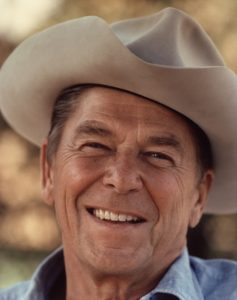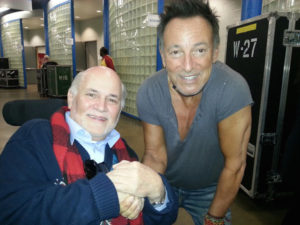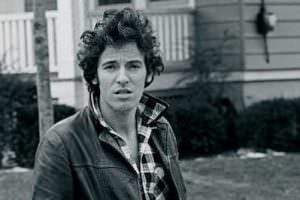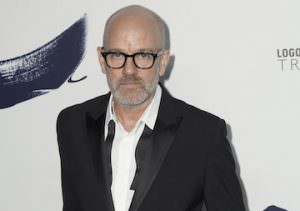‘The United States of Amnesia’: Gore Vidal in Winter
We can’t say Gore Vidal didn’t warn us.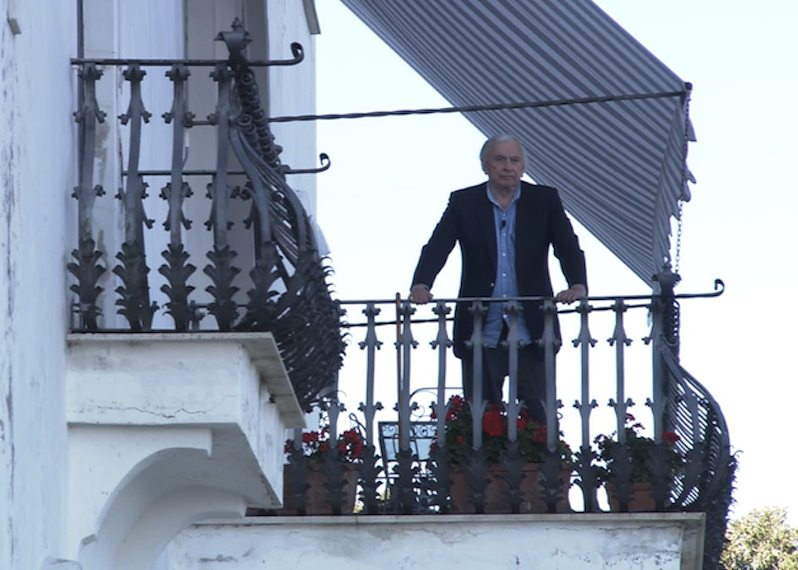 gorevidaldocumentary.com
gorevidaldocumentary.com
We can’t say Gore Vidal didn’t warn us.
From his cliffside perch in Ravello, Italy, where he made the most of his autumn years, Vidal could see America more clearly than his brightest contemporaries did. His long-range vision was definitely keener than that of his arch-nemesis William F. Buckley Jr., as well as his old friend John F. Kennedy, whom he considered an inspiring speaker but a disastrous president who took no action to back up his big talk. It was arguably even better than his own insight in earlier incarnations, when he was caught up in the social and cultural whirl of Hollywood and its sister city, Washington, D.C., famously dubbed “Hollywood for ugly people.” Gore had apparently heard that one before, having written a novel steeped in D.C. society with a counterpart plot set on the West Coast. Its title: “Hollywood.”
Director Nicholas Wrathall’s ambitious and shrewd documentary “Gore Vidal: The United States of Amnesia” offers rare glimpses beneath the polished and at times barbed exterior of the late author, critic and rabble-rouser, a portrait made more poignant some two years since his death at age 86. Growing up in the milieu that reliably produces the expertly synchronized heads of business and politics that become the Kennedys, the Buckleys and the captains of industry, groomed in prep schools, military service and the hallowed halls of Harvard, it’s a wonder Vidal managed to break rank and chart his own unconventional course as he did. (He narrowly dodged Harvard, declining his acceptance to the university before serving in World War II, and in fact his writings will be archived there, as outlined in his controversial will.)
Vidal inherited the long view, and his capacity to seek it, in part from his maternal grandfather, Thomas Gore, a blind U.S. senator from Oklahoma who died poor, according to his grandson, because he refused to bend with the political tide and because he refused to be bought. Young Gore, née Eugene Louis Vidal, spent many teenage years with his grandpa in Congress — front-row seats to the chambers where the drama of the decline of America, a central obsession of his life’s work, played out. Taking up the craft of a contrarian writer set him apart from the pack he ran with at Phillips Exeter, on Capitol Hill, in Kennedy’s White House and in Hollywood — sometimes blending in, often courting the spotlight, definitely profiting financially but keeping enough distance to avoid losing his voice and his acute sense of history.
Hence the name of the film, which points to the short-term attention and retention epidemic still ravaging the American public, aggravated by politicians and media alike. Wrathall’s goal in making the documentary, as he mentioned in a recent interview on Truthdig Radio, was to re-examine the latter half of the 20th century through Vidal’s eyes. In the process, he followed the icon through decades of memories and, as it happened, through the last six years of Vidal’s life.
And Gore got around. As his friend and fellow writer Jay Parini narrates, Vidal was a “shape-shifter” who popped up everywhere, like some ultra-urbane “Where’s Waldo” of his era, in the nerve centers and playgrounds of the power elite. Why, there he is again — smiling slyly between JFK and Jackie Kennedy, taking buddy road trips with Tennessee Williams, throwing Malibu beach soirées with Paul Newman and Joanne Woodward, running (twice) for Congress, sparring with Buckley on must-see TV c. 1968, tag-teaming Norman Mailer with Dick Cavett. In Italy, he held court with rock stars (Sting, Bruce Springsteen), movie stars (Jack Nicholson, Dennis Hopper, Susan Sarandon and Tim Robbins, one of a handful of guest commentators in the documentary) and politicians (Hillary Clinton, Mikhail Gorbachev).
Vidal also played host to a dazzling and perplexing array of coexisting personas: the preeminent essayist and storyteller, the outspoken gay rights trailblazer, the rookie candidate, the fallen romantic, the expat bon vivant. He often appears onscreen as the preening, wickedly brilliant public intellectual with a ferocious wit, a prodigious ego and a vein of vulnerability reserved for close relations like his longtime partner, Howard Auster. Wrathall does a nimble job capturing his cagey subject in 90 minutes through twinkly eyed anecdotes, fleeting personal confessions and archival clips, interspersed with some of Vidal’s most memorable bon mots. He was a master of the zinger, able to toss off one-liners that could delight the crowd or wither the plants for 50 yards in every direction, depending on the occasion. “The United States was founded by the brightest people in the country — and we haven’t seen them since” is just one of dozens of gems scattered throughout the film.
Call him what you will, but Vidal insisted he wasn’t a subscriber to any conspiracy theory of history, as his onetime “delfino”-turned-foe Christopher Hitchens suggested. Conspiracies aren’t necessary, Vidal explained, because the Dick Cheneys and the presidents of Chase Manhattan Bank and GM, not to mention the U.S., “all think alike,” and their thinking isn’t all that sophisticated anyway. In fact, in Vidal’s estimation, Hitchens got in on the groupthink just before the Iraq War, and Wrathall’s camera catches the sad fallout from that broken connection. Delfino no more.
Above all else, “The United States of Amnesia” convincingly makes the case that Gore Vidal was something of an oracle, well ahead of his time on many topics — homosexuality, the corporatization of American politics, the disastrous consequences of American foreign policy, the hollow office of the presidency and the mounting animosity toward the U.S. from abroad. He traced the contours of a country that squandered the dream of republic in its ongoing march toward empire, and though the many faces of Vidal might have confounded some of his audience, his words hold up in the final analysis. He may not have a rightful heir, but he leaves behind his work, along with one last backward glance in this film — and he still looks sharp, even from so far away.
Related links and features:
Click here for a list of showtimes and locations for “Gore Vidal: The United States of Amnesia.”
Read Vidal’s essays for Truthdig here.
Watch clips from the documentary below:
Your support matters…Independent journalism is under threat and overshadowed by heavily funded mainstream media.
You can help level the playing field. Become a member.
Your tax-deductible contribution keeps us digging beneath the headlines to give you thought-provoking, investigative reporting and analysis that unearths what's really happening- without compromise.
Give today to support our courageous, independent journalists.

